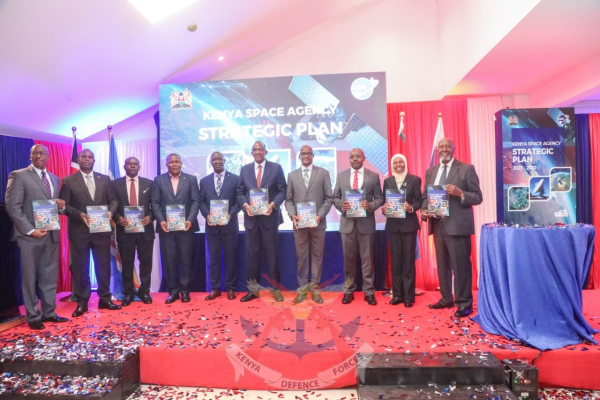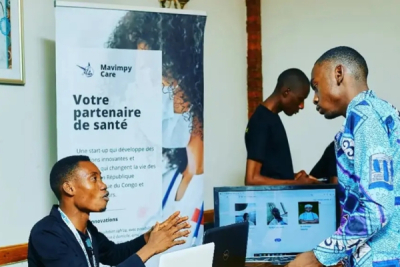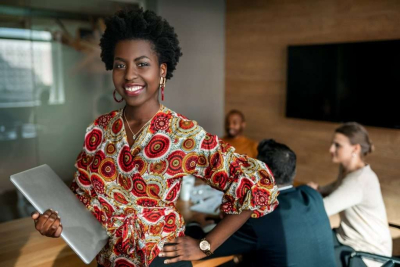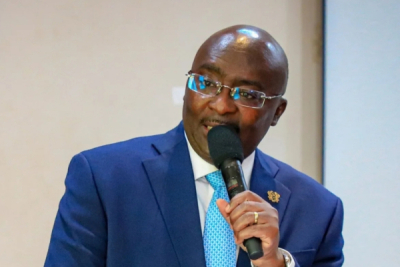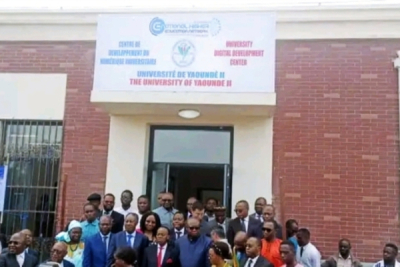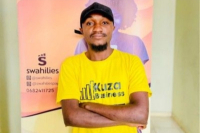African countries are implementing various projects to keep pace with the continent's accelerating digital transformation. Senegal, for instance, is becoming the first Francophone country in Africa to explore digital terrestrial radio.
Senegal's telecoms regulator, the Telecommunications and Postal Regulatory Authority (ARTP), launched a pilot project for digital terrestrial radio on Wednesday, May 8th.
The initiative seeks an alternative to traditional analog FM broadcasting, which suffers from frequency saturation, particularly in some Senegalese regions.
"The International Telecommunication Union (ITU) set the standard for digital terrestrial radio in the VHF band (174-220 MHz) in 2006," said Abdou Karim Sall, ARTP director. "Stakeholders later explored solutions for FM frequency shortages in Africa, but studies proved inconclusive. Faced with this shortage, ARTP felt it was time to launch this project."
The switch to digital radio aligns with the ITU's goal of transitioning all television and radio signals to digital. The transition to digital television is underway in several African countries, though facing delays. Digital radio has had limited uptake on the continent, making Senegal the first Francophone country to explore digital frequencies.
The new technology offers several benefits, including improved sound quality (often impacted by distance, interference, and weather), access to more radio stations, and the ability to pause and record live broadcasts.
Adoni Conrad Quenum
Kenya Space Agency launched its Strategic Plan 2023-2027 yesterday May 13 to boost the nation's space economy and socioeconomic development.
The plan targets key areas, including coordination, capability development, and research. It aims to create and deploy homegrown satellites, advance space education and research, and establish strategic alliances with international space organizations.
E-health services are rapidly expanding across the continent. They offer an appealing alternative due to the shortage of hospitals and health centers in some regions of Africa.
Mavimpy Care is an e-health solution developed by a Congolese startup, enabling users to access a variety of health services online through its web platform. Based in Lubumbashi, the startup was founded in 2020 by Gracien Kibala, Osée Badi, and Lepetit Mashini.
"The genesis of my business venture and my burning entrepreneurial spirit can be traced back to a few years ago. It was during a simple search for a dentist for a routine checkup. As a matter of habit, I turned to Google and entered the keyword ‘dentist DRC.’ To my great surprise, the search results displayed dentists from America, Europe, and other parts of the world. Google even presented me with names of dentists from Europe and other countries. However, not a single result was found for the Democratic Republic of the Congo (DRC)," Gracien Kibala told PataTech media in February 2024.
Through its web platform, users can consult a doctor online, search for hospitals or doctors in specific cities. To access the healthtech's services, users need to create an account by providing details such as their first name, last name, email address, phone number, and password. Once registered, users can access the various services offered in Congolese cities where the platform is available.
Mavimpy Care has integrated artificial intelligence into its services. Gracien Kibala explained, "We are delving into artificial intelligence with the connected bracelet that digitizes the medical record. We personalize your health file. Our connected bracelets provide health information, requiring only a QR code to access your medical history."
On the platform, users can also access articles offering tips and advice on managing health situations effectively and preventing some ailments.
Adoni Conrad Quenum
Viridian has launched RaiseReady, a seven-week program to enhance fundraising skills for female entrepreneurs in South Africa and Kenya, starting May 27th. It will equip participants with skills for equitable investor engagement, fostering support for women-led ventures. Applications are open.
Viridian, an impact agency, designs programs for early-stage entrepreneurs, investors, and support organizations across Africa's entrepreneurial ecosystem to bridge the gap between startups and angel investors.
The global adoption of blockchain technology is accelerating. Governments around the world are taking notice, exploring its potential to bring greater transparency and efficiency to their operations.
Ghana is poised to become the first African nation to adopt blockchain technology for its government operations, according to Vice-President Mahamudu Bawumia. The announcement was made during the 14th regional conference and annual general meeting of the heads of anti-corruption agencies in the Commonwealth of Africa, held in Accra from May 6 to May 11.
"We are going to adopt blockchain technology for government to ensure that all data and transactions in the Government space are transparent and tamper-proof, no one can change them, and so ours could well become the first blockchain-powered government in Africa," stated Bawumia.
This initiative is part of Ghana's Digitalization Strategy, which has been in place since 2017. The strategy has enabled the government to collect 201 billion GH₵ (approximately $14.2 billion) since 2023 through the digitization of public services via the Ghana.gov platform. Additionally, the new digital ID card has allowed the government to detect 404,707 fictitious names on the payroll of the National Service System and 29,000 phantom pensioners.
By adopting blockchain, Ghana aims to secure government data in a fail-safe manner. According to Bawumia, this technology will serve as a bulwark against corruption by monitoring every modification made to digital data.
Blockchain is an advanced database mechanism that allows for transparent sharing of information across a network. It can be used to record contracts, financial transactions, digital assets, votes, and much more, in a decentralized and secure manner.
Samira Njoya
On Monday, May 13, Jacques Fame Ndongo, the Cameroonian Minister of Higher Education, inaugurated a digital development center at the University of Yaoundé 2 Soa. The center, which can accommodate 40 students, features a smart classroom. It is equipped with cutting-edge technology for digitization and the production of multimedia courses, as well as distance learning.
Driven by the vision of a prosperous digital future for African businesses, he develops customized technological tools that cater to the specific needs of small and medium-sized enterprises.
Tanzanian native John Haule is the founder and CEO of Swahiliesm a startup that develops digital payment solutions for businesses across Africa. Established in 2020, Swahilies provides digital tools designed to empower African businesses by offering sophisticated financial and operational resources. Its mission is to streamline accounting processes, facilitate digital payments, and provide access to banking solutions. The company offers a suite of solutions aimed at helping businesses maintain organization and operate efficiently.
Swahilies has developed a platform that enables businesses to track sales and expenses in real-time, providing them with an accurate understanding of their performance at any given moment. It offers a real-time inventory management system and has created tools to assist businesses in recovering unpaid debts from their customers. Swahilies’ solutions are currently used by over 10,000 businesses in Tanzania.
In addition to his role at Swahilies, Haule is a founding member of the Tanzania Fintech Association (TAFINA), a platform dedicated to bolstering the fintech ecosystem to advance financial and economic inclusion in Tanzania. As the editor-in-chief of the media outlet This Week in Fintech in Africa, he also contributes to the reporting on sector developments.
Prior to Swahilies, Haule founded several other companies. In 2015, he established Positivity Clothing Brand, a clothing brand aimed at inspiring the new generation. The company offered a range of products, including customized t-shirts and caps. In 2016, he co-founded Swahili Inspiration, a digital media platform that uses the Swahili language to inform Tanzanians about global opportunities.
Haule earned a bachelor’s degree in social protection in 2020 from the Institute of Finance Management. From 2021 to 2022, he served as a VC scout, seeking investment opportunities in startups for the investment firm shl.vc.
Melchior Koba
With over 150,000 users in its four years of existence, according to the startup's data, Axa Zara offers several fintech solutions to African populations. The startup aims to become one of the leading players in this segment in Africa.
Zeyow is a fintech solution developed by the Beninese startup Axa Zara, allowing users to create virtual bank cards for conducting online financial transactions. Founded in 2019 by Elias Mahugnon Missihoun, the startup operates out of Abomey-Calavi (Benin) and Abidjan (Côte d'Ivoire).
“Axa Zara’s mission is to create infinite opportunities through technology. By leveraging the potential of technology, our goal is to provide access to new possibilities, break down barriers, and enable people from all walks of life to achieve their professional goals,” the startup explained to We Are Tech Africa. It continued, “We focus on developing digital solutions that are not only effective but also inclusive, ensuring that no one is left behind in the digital revolution.”
Zeyow does not have a mobile app. Users must access the service through a web browser by visiting the Axa Zara website. To use Zeyow, users click on “create an account” and provide information such as name, email address, and phone number.
After this step, users can create their virtual bank card and perform online operations like shopping on e-commerce platforms or subscribing to services. The card can be recharged using various methods, including mobile money, which is popular among African populations.
Talking about its continental expansion plans, Axa Zara says: “We are actively looking to expand into other countries. This process involves a rigorous market analysis to pinpoint exactly where the needs lie. We consider the local ecosystem and all available opportunities to ensure that our intervention is not only relevant but also beneficial to the communities we aim to serve.”
Adoni Conrad Quenum
Two months ago, about ten Central and West African countries experienced an internet disruption for several days. The inconvenience has occurred again.
Internet services have been disrupted in several East African countries since Sunday, May 12. NetBlocks, a British organization that monitors internet restrictions worldwide, attributes the incident to failures in the SEACOM and EASSY submarine cable systems serving the region. According to NetBlocks, the disruptions impact millions of users, including in Tanzania, Mozambique, Malawi, Burundi, Rwanda, Madagascar, Comoros, Uganda, Somalia, and Kenya. Sierra Leone, a West African country, is also slightly affected by these disruptions.
This marks the second occurrence this year of internet disruptions in Africa due to incidents involving submarine cables that serve the continent. In March, similar outages affected the WACS, MainOne, ACE, SAT3, Seacom/TGN, AAE1, and EIG cables, impacting a number of West, Central, and Southern African countries. Some of these cables have yet to be repaired.
In the affected countries, efforts are underway to address the situation, involving both telecom operators and Internet service providers, as well as public authorities. Nape Moses Nnauye, the Tanzanian Minister of ICT, stated, “There are ongoing efforts to solve the problem. As they continue to solve the problem, we will have very low access to internet and international voice calls.”
Isaac K. Kassouwi
In today’s rapidly evolving digital landscape, initiatives that transcend connectivity barriers are pivotal. They equip businesses to thrive in a competitive global arena. By enhancing connectivity, these efforts not only streamline operations but also catalyze the adoption of cutting-edge technologies. The expansion of markets, as a result, leads to a robust economic upturn and the creation of new job opportunities, marking a significant stride in collective progress.
Avanti Communications has partnered with Q-KON to introduce Low-Earth-Orbit (LEO) satellite services in South Africa. The leading global multi-orbit satellite technology provider announced this in a tweet posted today May 13.
Kyle Whitehill, CEO of Avanti Communications emphasizes the partnership's strategic significance, catering to diverse customer needs and giving “our customers in South Africa the assurance that all their unique problems can be solved through our services. This is particularly important for our enterprise customers in South Africa where the need for resilience is key.”
This partnership addresses regional connectivity obstacles by harnessing Q-KON's Eutelsat OneWeb service, powered by its advanced Smart Satellite Service technologies. By integrating LEO services with existing GEO offerings, the alliance enhances Avanti's multi-orbit solution. The introduction of LEO connectivity holds the promise of improved solutions for South African businesses, highlighting a shared dedication to innovation and customer-centricity.
Space in Africa released a report in 2022 delving into the hurdles Africa encounters in connecting its population to the internet. Titled "The State and Future of LEO Satellite Internet Connectivity in Africa," the report identifies poor infrastructure, affordability issues, and a perception that some areas are not ready for internet access. Nonetheless, cooperative endeavors are starting to reshape the continent's internet landscape. Additionally, the report references MIT research indicating that due to limitations with terrestrial systems, satellites are poised to significantly increase connectivity across Africa in the next five years.
Hikmatu Bilali
More...
On Thursday, May 9, Algerian Minister of Post and Telecommunications, Karim Bibi Triki, announced the upcoming installation of 1,000 new automated teller machines (ATMs) by Algérie Poste across the country. This initiative aims to meet the increasing demand for banking and financial services. It will help facilitate daily life for citizens, especially in areas where access to traditional banks is limited.
With several years of experience gained from Senegalese and European companies, he has ventured into the education sector, using technology to assist schoolchildren.
Senegalese Entrpreneur Mafal Lô Absa is the co-founder of Génimi, a startup that streamlines tutoring to aid students in Francophone Africa. Established in 2022, Génimi is a mobile platform that makes learning an enjoyable experience for children, parents, and tutors alike. Its mission is to nurture each child’s potential by teaching them how to learn and instilling a lifelong passion for learning.
Génimi is designed to support elementary students who are struggling with mathematics and reading by identifying their challenges and connecting them with local coaches to help them excel. Besides facilitating diagnosis, the app provides a program to address children’s learning gaps, guides coaches, and generates engaging exercises that children can tackle independently. To date, the app, in collaboration with three schools, has served 1,488 students and trained 38 coaches.
Mafal Lô Absa also serves as the president of CJD Senegal, the national chapter of an international non-profit organization of young leaders and business executives dedicated to fostering entrepreneurship and enhancing the overall performance of businesses and entrepreneurs.
In 2015, he founded FIREFLY Media Senegal, a platform that enables businesses and brands to better understand and engage their target audiences. In 2019, he co-founded PitchPalabre, a company focused on enhancing the capacities of young entrepreneurs.
Mafal Lô Absa earned a degree in systems, networks, and telecommunications engineering in 2004 from Ingésup, a computer engineering school. He also holds a master’s degree in market finance, which he received in 2007 from the Conservatoire National des Arts et Métiers.
With a diverse professional background, he has worked as a business and IT analyst at SIX Telekurs, a Swiss company providing services in the securities, financial information, and payments sectors. He has also held positions as a business analyst at BNP Paribas and Dexia Asset Management, a European asset management company.
Melchior Koba
To make learning more accessible and engaging, two Senegalese tech entrepreneurs launched a new e-learning platform aimed at students from middle school through senior high school. The platform has already secured partnerships with several Senegalese schools.
20/20 Edtech, an e-learning solution developped by a Senegalese startup, provides users with a wealth of educational content accessible via web and mobile platforms at their fingertips. The startup, headquartered in Dakar, was established in 2020 by Abderrahmane Sow and Ahmadou Ba. Its mission is to build a library of cost-effective educational content for students in Francophone Africa.
The startup explains, “By utilizing the 20sur20 platform, students can learn through hundreds of concise, straightforward, and highly engaging videos that enable them to review at their own pace, practice continuously by answering our quiz questions that ensure comprehension of the material, and improve by pinpointing their knowledge gaps and focusing their learning efforts accordingly.”
The solution includes a mobile app, which is exclusively available on Android and not on the Play Store. Users must navigate to the web platform to download the app and register an account by providing their personal information. Once registered, users can access a range of edtech content, from sixth grade to senior high school. Currently, only the content for sixth grade, ninth grade, and twelfth grade is available on 20/20 Edtech.
In addition to a variety of courses, quizzes are provided to enable users to gauge their proficiency levels. An analytical dashboard offers real-time performance visualization, identifies areas of weakness, and automatically addresses them with the platform’s content. The objective is to generate 1,500 videos and 50,000 quizzes across seven subjects (including mathematics, physics-chemistry, life, and earth sciences, philosophy, etc.) for secondary school classes. The aim of 20/20 Edtech is to simplify studies for students at the various levels mentioned.
Adoni Conrad Quenum
He is a dedicated entrepreneur who devotes his life to creating technological solutions aimed at improving the efficiency of small and medium-sized enterprises in Africa. His commitment to entrepreneurship and his innovative spirit have earned him several awards.
Ivorian tech entrepreneur Alex Degny (photo) is the co-founder and CEO of Tajiri, a startup established in 2023 to transform the restaurant management landscape in Côte d'Ivoire and throughout Africa. The company offers a mobile app, compatible with Android and iOS, that simplifies the lives of restaurateurs by providing a platform to log sales, monitor business data, and even secure financing. Its app streamlines order taking and tracking, and facilitates the monitoring and management of inventory for optimal planning.
In addition, Tajiri provides analytical reports that enable performance assessment and data-driven decision-making. It enhances operational efficiency in restaurants by improving communication between the dining area and the kitchen.
As of April 12, 2024, Alex Degny took on the role of president of #Ci20 (Côte d’Ivoire Innovation 20), a coalition of tech companies, succeeding Steven Bedi.
Prior to launching Tajiri, In 2017, Degny founded Innoving, a startup that offers management software to small and medium-sized enterprises. Then, in January 2018, he established RIZE’S, a French startup specializing in digital services.
Degny is a graduate of the Catholic University of West Africa, where he earned a master’s degree in banking, business, finance, and real estate law in 2008. He also holds a certificate in business administration and management from HEC Paris.
Degny embarked on his professional journey in 2011 at FIAO Côte d'Ivoire (West African Investment Finance), serving as the head of the executive office. In 2014, he transitioned to the role of sales manager at WABCO COTIA, a company that specializes in the production and marketing of compound fertilizers. In 2015, he served as an administrative consultant for the rice company GAN Logis. By 2016, he had become the general manager of Agri Hope, a consortium of several companies specializing in agribusiness.
In recognition of his contributions to the fields of technology and entrepreneurship in Africa, Degny was awarded the innovation prize at season 5 of Orange Fab Côte d'Ivoire in 2019.
Melchior Koba



